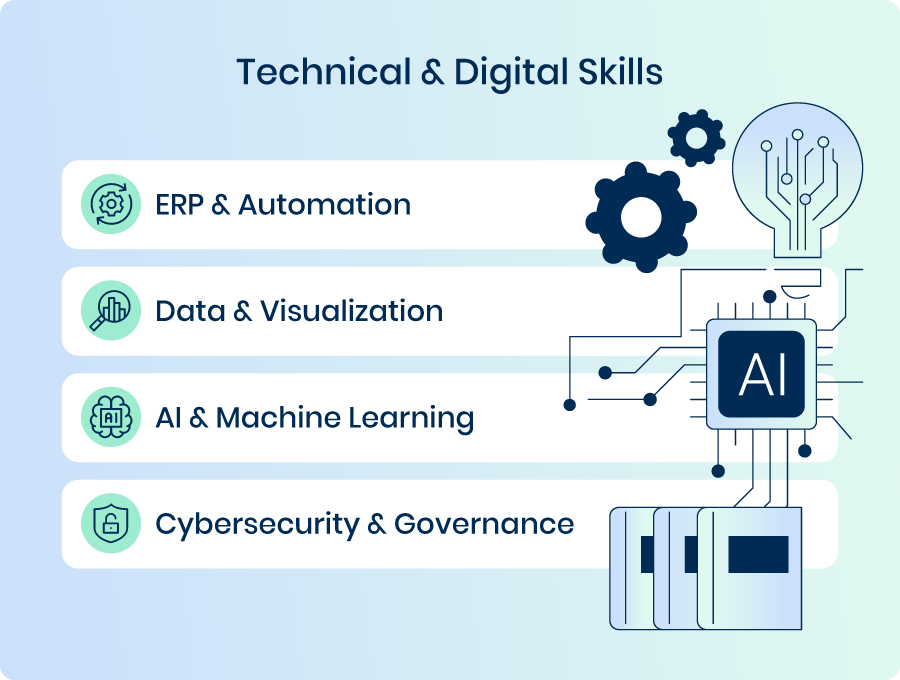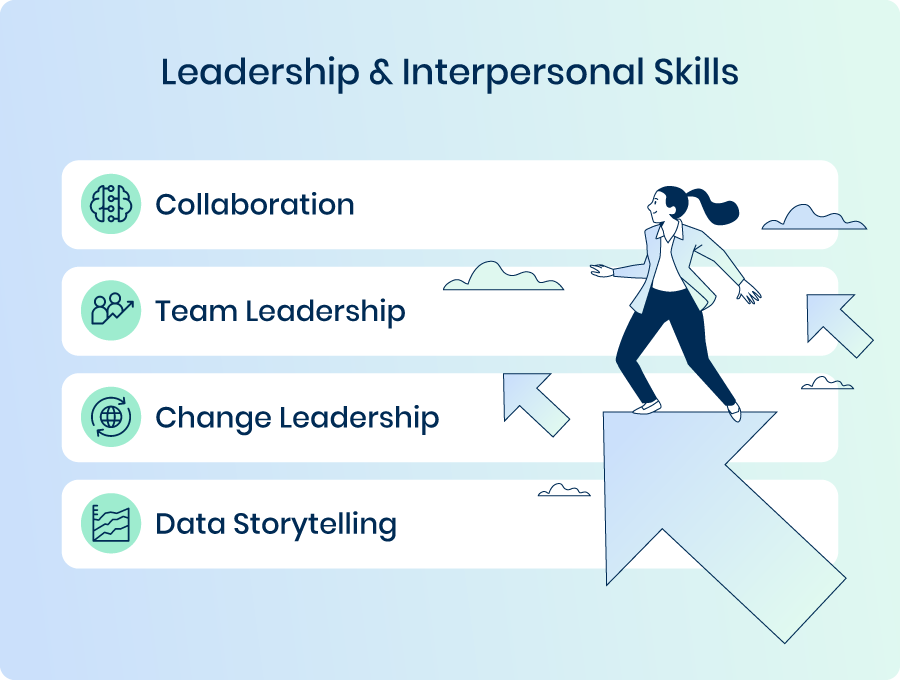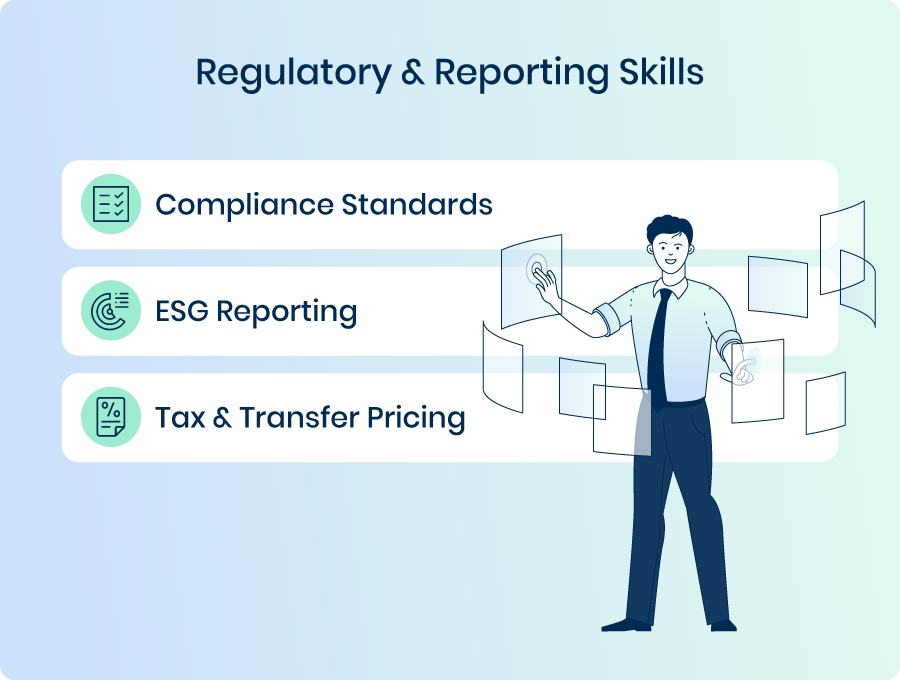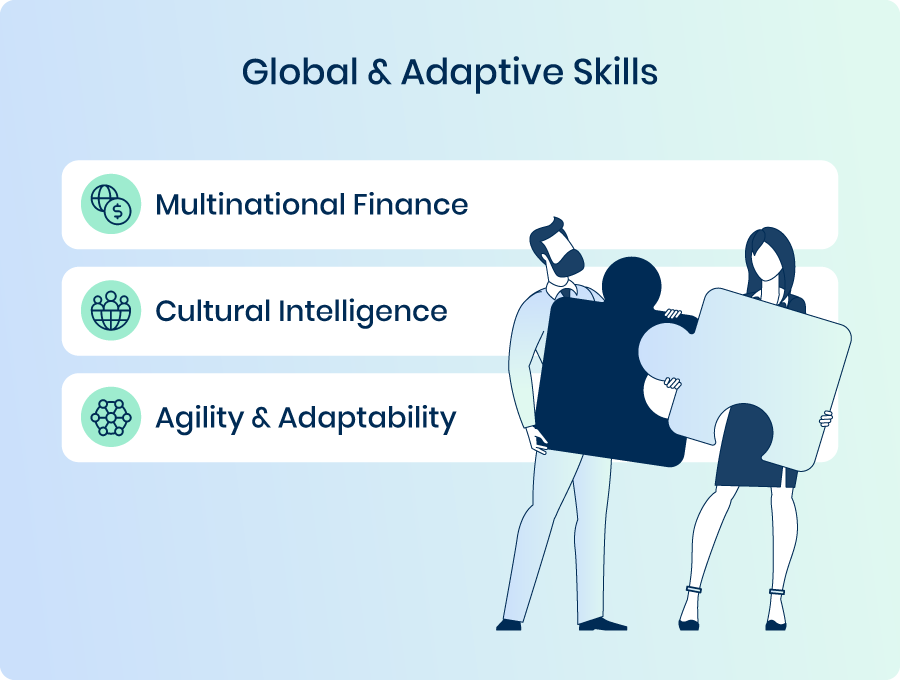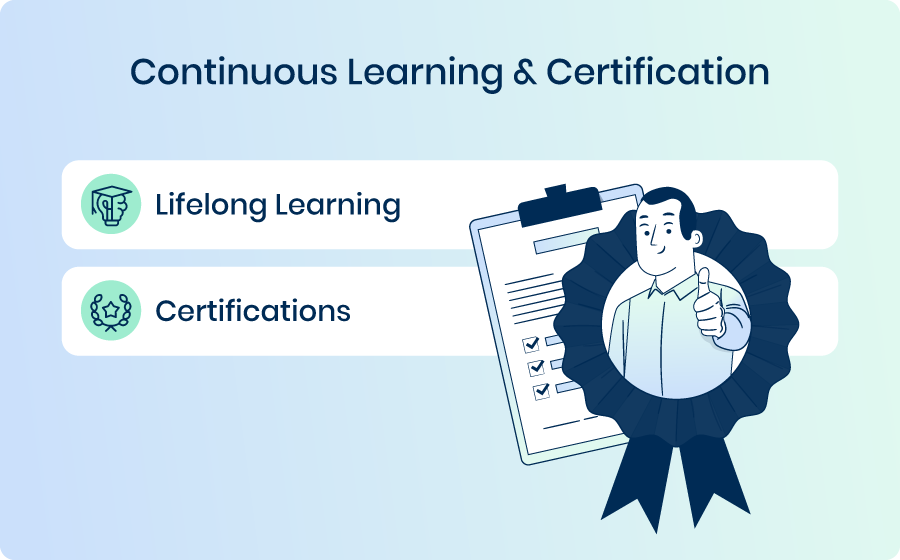Spreadsheets haven’t disappeared – but the traditional role certainly has.
Financial controllers today are navigating one of the most radical evolutions in the profession’s history. What once was a role rooted in retrospective reporting now serves as a forward-facing command center for data, strategy, risk, and technology.
The controller’s desk sits at the convergence of AI, ESG, real-time analytics, and global volatility – professionals who cling to legacy skills risk being rapidly left behind.
This reflects present reality, not future trends.
In this article, we break down the 20 essential skills financial controllers must master – not just to stay relevant, but to lead. These aren’t theoretical bullet points, they represent the hard, specific capabilities that separate today’s tactical accountants from tomorrow’s CFOs, transformation leaders, and enterprise architects.
20 Skills to Future-Proof Financial Controllers
Let’s explore the 20 critical skills financial controllers need to cultivate to remain relevant, effective, and competitive in the next decade and beyond.
These skills fall into six core categories:
- Technical & Digital Skills
- Strategic & Analytical Skills
- Leadership & Interpersonal Skills
- Regulatory & Reporting Skills
- Global & Adaptive Skills
- Continuous Learning & Certification
![]()
Technical & Digital Skills
1) ERP & Automation
Controllers must stay ahead of technologies that automate routine accounting tasks.
Familiarity with modern ERP systems such as SAP, Oracle, and NetSuite is crucial. Automation tools like robotic process automation (RPA) and business process management systems help streamline workflows and enhance operational efficiency.
Leveraging these technologies reduces errors and reallocates time toward strategic initiatives that add real business value.
2) Data & Visualization
Extracting actionable insights from complex datasets is essential. These skills support deep-dive financial analysis, budgeting, and performance monitoring.
Visual storytelling boosts stakeholder engagement and facilitates faster, more informed decision-making. Presenting data in clear, compelling formats bridges the gap between raw numbers and strategic business narratives.
3) AI & Machine Learning
AI and ML are transforming finance with capabilities in fraud detection, anomaly recognition, cash flow forecasting, and expense management.
Understanding how these tools function enables controllers to assess their potential impact and risks effectively. Integrating AI-driven insights into financial processes unlocks new efficiencies and predictive power, fostering smarter, proactive management.
4) Cybersecurity & Governance
As financial data becomes increasingly digitized, the risk of breaches grows.
Controllers need a solid grasp of data protection practices and must actively participate in cyber-risk assessments. Enforcing data governance frameworks ensures information integrity, compliance with privacy laws like GDPR, and builds trust with internal and external stakeholders.
![]()
Strategic & Analytical Skills
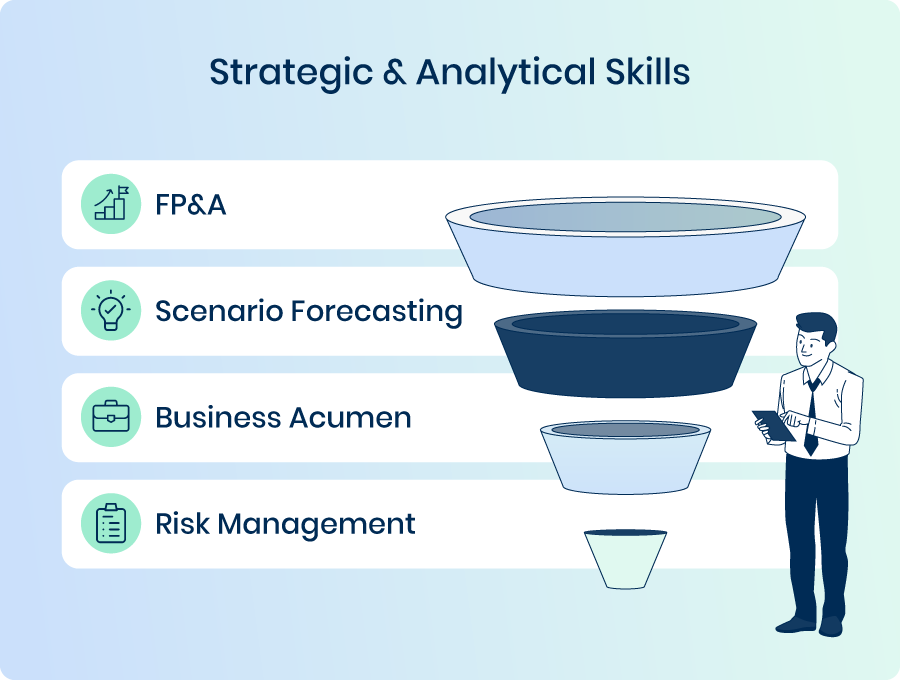
5) FP&A (Financial Planning & Analysis)
In addition to traditional reporting responsibilities, controllers play a crucial role in strategic planning and business forecasting.
They develop and refine financial models that support the budgeting process and ensure financial targets align with corporate objectives.
Strong FP&A capabilities allow for the identification of growth opportunities and cost-saving strategies that can materially enhance organizational performance.
6) Scenario Forecasting
Constructing financial scenarios to explore a range of potential outcomes is essential, particularly during periods of economic uncertainty.
Using advanced forecasting techniques, controllers can model the potential effects of inflation, market downturns, or geopolitical disruptions. Such foresight strengthens risk mitigation efforts and facilitates informed decision-making under diverse conditions.
7) Business Acumen
A deep understanding of the company’s industry, competitive environment, and value chain equips controllers to interpret financial data in a broader context.
This knowledge enhances their ability to advise on pricing strategies, investment decisions, and operational efficiencies. Financial leadership informed by commercial insight helps bridge the gap between finance and enterprise-wide objectives.
8) Risk Management
Controllers are increasingly tasked with identifying and managing both financial and operational risks.
Implementing effective mitigation strategies and ensuring risk exposure aligns with the organization’s tolerance levels help safeguard against potential disruptions. Engaging in enterprise risk planning fosters a culture of resilience and proactive preparedness.
![]()
Leadership & Interpersonal Skills
9) Collaboration
Controllers often act as financial liaisons across multiple departments, including operations, marketing, and IT.
Strong cross-functional relationships support accurate budgeting, performance tracking, and strategic alignment. Collaborative environments promote transparency and foster shared ownership of financial outcomes across the organization.
10) Team Leadership
Leading diverse and frequently remote finance teams calls for strong leadership abilities.
Controllers are expected to inspire, mentor, and support ongoing professional development, nurturing a culture of continuous improvement.
Effective leadership enhances engagement, productivity, and retention in today’s dynamic workplace.
11) Change Leadership
Driving digital transformation requires controllers to lead teams through adoption challenges and evolving processes.
Success depends on anticipating resistance, communicating benefits clearly, and encouraging adoption of new technologies.
Proficient change leadership accelerates implementation and helps maximize return on investment.
12) Data Storytelling
Technical expertise should be complemented by the ability to convey complex financial insights in an accessible way.
Delivering compelling narratives around data captures the attention of executives, operational teams, and external stakeholders. Tailoring communication to each audience ensures financial information leads to informed strategic decisions.
![]()
Regulatory & Reporting Skills
13) Compliance Standards
Controllers must remain up to date with evolving accounting standards such as IFRS and GAAP, along with regulatory frameworks like SOX.
Implementing robust internal controls supports accurate financial reporting and ensures regulatory compliance. Promoting transparency protects the organization’s reputation and strengthens investor confidence.
14) ESG Reporting
Environmental, social, and governance (ESG) considerations have become increasingly vital to corporate reporting.
Gathering and validating ESG data requires close coordination with sustainability teams and external auditors. Delivering reliable sustainability metrics positions the organization as responsible and forward-looking.
15) Tax & Transfer Pricing
Operating across borders adds complexity to managing intercompany transactions and setting transfer pricing policies.
Controllers must possess deep expertise in both local and international tax laws to optimize tax liabilities while remaining compliant. Strategic tax planning helps mitigate audit risk and enhances financial efficiency.
![]()
Global & Adaptive Skills
16) Multinational Finance
Operating across borders demands expertise in managing currency fluctuations, tax regimes, and diverse financial regulations.
Controllers are responsible for accurately consolidating global financial results while mitigating foreign exchange risks. Well-developed, comprehensive policies help maintain financial stability amid volatile international markets.
17) Cultural Intelligence
Inclusive communication and respect for cultural norms enhance collaboration within multinational teams.
Controllers who adopt a global mindset foster stronger relationships and effectively navigate regional complexities. Demonstrating cultural sensitivity ensures better alignment of financial practices and contributes to achieving global business objectives.
18) Agility & Adaptability
Market, regulatory, and technological shifts require controllers to pivot swiftly and with confidence.
Embracing experimentation and iterative processes supports effective decision-making in uncertain conditions. Agility plays a key role in sustaining performance in dynamic environments.
![]()
Continuous Learning & Certification
19) Lifelong Learning
Ongoing skill development is essential in a profession that evolves as rapidly as finance.
Engaging in online courses, attending industry events, and participating in professional networks helps controllers stay current and competitive. A strong commitment to learning enables them to anticipate change and lead with confidence.
20) Certifications
Professional credentials such as CPA, CFA, ACCA, and CMA, showcase foundational expertise and enhance credibility.
Earning specialized certifications in areas like data science, cybersecurity, or ESG reporting can distinguish controllers in a crowded marketplace. Relevant qualifications reflect a dedication to excellence and ongoing growth.
![]()
The Financial Controller of the Future
The controller’s role has already evolved, and the pace isn’t slowing.
The real question isn’t whether finance will transform, but whether you will lead that transformation or be left behind by it.
Don’t wait for permission or a crisis to begin building the skills you’ll need. Set your direction. Pursue the tools, training, and experiences that support your long-term goals.
Whether your interests lie in strategy, technology, or governance, there’s a leadership path ready to be claimed. The next decade of finance will be shaped by controllers who act decisively. Be one of them.
Start today by transforming how your team operates. DOKKA automates the grunt work so you can focus on what really matters: insight, impact, and influence. Book a demo to see how DOKKA can support your evolution.

